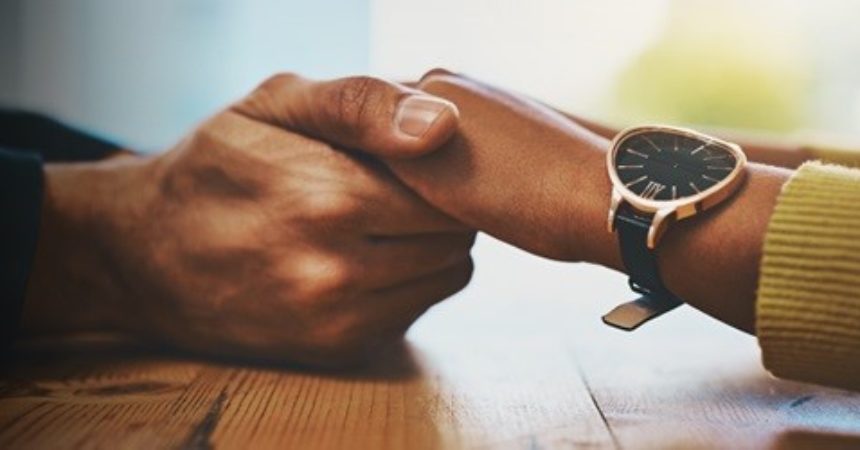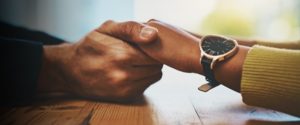
Amidst COVID-19, Black psychologist, others tell African-Americans how to maintain mental, emotional health
As Coronavirus cases have risen to almost one million confirmed cases in the United States, it can be difficult to remain positive, minimize anxiety and work through times of painful transition and uncertainty.
Psychologist Dr. Esther Hyatt, a retiree from the New York City Department of Education, shares a few tips that could benefit Black people during the quarantine. She advises the following:
Plug out
Being able to turn off the news for a bit and disconnect from technology. Hyatt emphasizes the importance of turning off the television, walking away from the computer and separating from your phone. While technology can seem to keep us in the loop, it is also imperative to not make technology a lifeline.
“We must learn to remove electronic stuff,” said Hyatt.
Jonathan Comer, Professor of Psychology and Psychiatry at Florida International University, said overexposure to the news does not help awareness. Instead it can contribute to increased fear and anxiety. Comer also said that checking in a few times a day versus all day generally does not provide more information.
“You definitely must turn off the TV,” said Hyatt.

Psychologist Esther Hyatt, a retiree from the New York City Department of Education, shared some important tips that could benefit Black people during coronavirus quarantine.
U. S. Department of Health and Human Services Office of Minority Health photo
Get enough sleep
Sleep is essential. In quarantine it can be easy to oversleep, therefore, it is important to maintain healthy sleep habits in order to be energized, reduce stress levels and provide support to your immune system.
“While sleep requirements vary slightly from person to person, most healthy adults need between seven to nine hours of sleep per night to function at their best,” according to Help Guide, an organization dedicated to mental health and wellness.
With the extra time afforded to folks during the pandemic, it is very important that sleep be a key part of a daily routine, said Hyatt. Although reality has changed and most people are not getting up for work or traditional in-person class, it is just as important to maintain
“We should make sure we’re getting an adequate amount of sleep, not oversleeping under sleeping to maintain healthy lifestyle habits throughout turmoil, like this,” she said.
Exercise
Exercising and getting the body moving doesn’t have to be strenuous, involving heavy machinery, weights or recorded workouts. While those things may benefit some people, exercising can be as simple as stretching, walking or moving your body in small rotations.
“You can begin with your feet, by first moving your toes and moving up to your arms,” says Hyatt.
Dedicating a portion of your time to improving your exercise habits gives you a sense of weight control, strength management, and energy.
According to Mayo Clinic, daily exercise contributes to lowering risks to cardiovascular disease, something that disproportionately affects African-Americans. Regular exercise has also been linked to the prevention and management of stroke, metabolic syndrome, high blood pressure, type 2 diabetes, depression, anxiety, many types of cancer, arthritis, and falls.
“Lead a healthy life by doing your exercises,” said Hyatt.
Eat healthy
According to NPR, while about 75 percent of people think they live healthy lifestyles, 80 percent don’t eat enough fruits, veggies and whole grains. Despite what most people think, they do not consume enough nutrients but instead they consume less fruits and veggies and exceed recommended amounts of sodium, added sugars and saturated fats.
“We need to eat foods that are healthy for us and that will benefit our body,” said Hyatt.
During a time where people are self-isolating and staying home, it is important to practice healthy eating habits. Fruits and vegetables can be super-foods that help the body function well and fight infection and disease.
Not forgetting to drink water regularly is critical. Water plays a large role in healthy digestion and contributes largely to eliminating toxins from the body.
“You must remain hydrated and drink a lot of water,” Hyatt said.
Utilize the free time at home
Hyatt urges Black folks to take time to move around the house and find something to do that you may have been putting to the side. Whether that be cleaning out an old closet, rearranging a room, painting the basement, getting rid of clutter in a storage room or donating unused items to those in need. Finding something indoors to keep busy not only keeps you moving but it exercises the brain and allows for another thing to be checked off the to-do list.
It is also imperative that this time be used to also “face the reality of what is going on,” said Hyatt.
Coming to grips with your feelings can be helpful to use this time wisely and be intentional with yourself and validate emotions that you may have surrounding the pandemic. It is okay to feel those things and acknowledge them. Normalizing feelings is important during a time where heightened anxiety is expected.
“Remember that anxiety and stress are completely normal reactions. Rather than try to talk yourself out of worrying, give yourself a program to follow: Staying well-informed, taking common sense precautions, and finding time to clear your mind. And know that it’s OK to seek help from a professional if you’re having trouble managing stress and anxiety on your own,” wrote Dan Harrah for Mercer Behavioral Health Consulting Group.
Once acknowledging personal feelings, people can begin to focus on other things and utilize the free time to be more productive.
While productivity can mean different things for different people, as long as it is safe, indoors and makes you feel happy, go for it, said Hyatt.
According to Hyatt, activities like knitting, crossword puzzles, art are activities that can play an integral role in channeling the brain’s attention and focus. This can also be working on building self-confidence through positive affirmations and relaxing with music.
“Music is great,” said Hyatt. “We all have things that bring us joy, find that thing and do it inside.”
Content for this story was provided by the U. S. Department of Health and Human Services Office of Minority Health.







